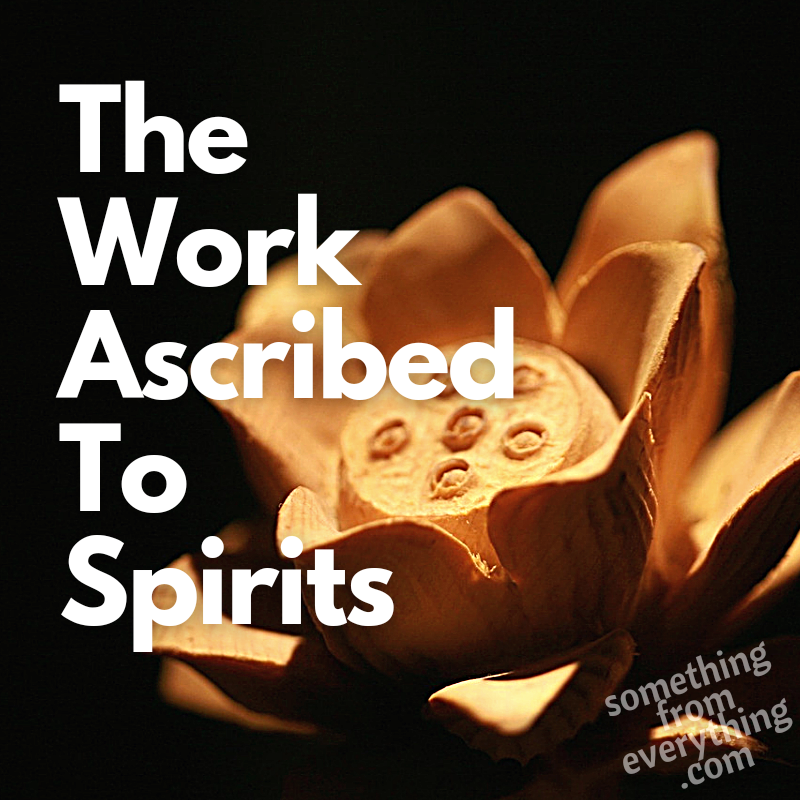
“I just feel like… if I stop pushing this boulder uphill for a second, it’s going to start rolling back downhill again. Maybe even run me over”.
There is a delicate balance to sharing with strangers on the internet. This man’s comment was entirely too honest for comfort.
The group he was addressing was an online writing community, and one I valued being a part of. Some online creative groups are merely thinly veiled self promotion machines. This group celebrated each other’s accomplishments, gave feedback (when invited to), and twice a week wrote together (separately) over video in silence, excepting the occasional rustle of papers or laptop keys tapping in the background.
And occasionally we aired our (uncomfortably honest) frustrations and disappointments with our creative endeavors, and the success (or lack thereof) we found in them.
“I just wrote a great piece for a local magazine”, he continued. “For a few days, I had a big increase in traffic to my website, even a few signups to my newsletter. But a week later, those same traffic numbers were down, the lowest they’ve been in over a year”.
“I mean…does any of this have any momentum if I stop pushing – if I’m not constantly selling myself?”
There were a lot of murmurs of agreement. That one hit close to home.
It would be one thing if our entire collection of writers were simply novices, lacking the necessary experience, skill and discipline to create something worth reading. But this was a talented group, littered with notable accomplishments. Many of them have written articles regularly picked up by well known websites and print magazines. A few had written novels distributed and produced by respected publishers. A handful were creators of top ranking podcasts. At least one had quit their day job to pursue writing and creating full time (and though they might be hungry or even malnourished, they insisted were not starving). Many had received various awards that all said, in essence: “It’s Good. Keep Going”.
By many metrics, these were successful writers. But these “success stories” didn’t feel very successful at that particular moment.
A week later, another “successful” artist posted online about a recent windfall:
“I just hosted a book signing and meet and greet at the largest bookstore downtown in Vancouver. On a Saturday. My publisher was so excited! I was so excited! I was there for four hours. I sold three books. What am I doing wrong?”
This is hardly a new phenomenon, and even the greatest writers of our time don’t seem immune to this disappointment. In her seminal book on writing “Bird By Bird”, Anne Lamott reveals that after her first book was published, she abruptly realized that “it seemed that I was not in fact going to be taking early retirement”. She then explains that similar self inflicted expectations for fame and fortune would be repeated and dashed with the publishing of many of her subsequent books.
Of course this disappointment is hardly the sole possession of writers. Some form of “what am I doing wrong?” has likely been asked by countless souls in all fields of creative work, especially after some encouraging success.
It seems we all look for the momentum to build. We all check our website traffic or total downloads too often. We all hope for that viral post, that golden opportunity, that windfall. We all prepare for the fanfare and fame. We all secretly dream of early retirement.
We all want to be “successful” artists, but with each new and fleeting success, our frustration and disillusionment grows.
Could it be that we’re assuming at the wrong target altogether? Perhaps we’ve been measuring our success but the wrong metrics. Maybe we need a new vision for what the work even is.
One of my favorite written works, “Poem of the Woodcarver” (a Taoist tale, usually attributed to Chuang Zu) addresses the complex relationship between creativity and creation, pride and prosperity, work and wonder.
Allow me to share it with you:
K(hing), the master carver, made a bell stand of precious wood.
When it was finished, all who saw it were astounded.
They said, it must be the work of spirits.
The prince of Lu said to the master carver:
“What is your secret?”
Khing replied: I am only a workman: I have no secret.
There is only this:
When I began to think about the work you commanded I guarded my spirit, did not expend it on trifles, that were not to the point.
I fasted in order to set my heart at rest.
After three days of fasting, I had forgotten gain or success.
After five days, I had forgotten praise or criticism.
After seven days, I had forgotten my body with all its limbs.
By this time all thought of your Highness and of the court had faded away.
All that might distract me from the work had vanished.
I was collected in the single thought of the bell stand.
Then I went to the forest to see the trees in their own natural state.
When the right tree appeared before my eyes the bell stand also appeared in it, clearly, beyond doubt.
All I had to do was put forth my hand and begin.
If I had not met this particular tree, there would have been no bell stand at all.
What happened?
My own collected thought encountered the hidden potential in the wood;
From this live encounter came the work which you ascribe to the spirits.
That’s a course correction, isn’t it?
The Poem of the Woodcarver does not fix nor address any of the (legitimate) disappointments of my writing group, or my own. Understanding the concepts in this poem will not increase readership, will not procure book deals, will not increase website traffic or newsletter sign ups. It will not sell more books at book signings.
All of those concerns and hopes are understandable and familiar, but they are also secondary, illusionary or even distracting.
The Poem of the Woodcarver is a tale of singular focus. That is what both infuriates and intrigues me. I want to know how to see the bell stand within the tree and be paid and praised for it! I want to write the work that is true and transcendent and increase my web traffic and downloads! I want to write the novel, and get the publishing deal. These things are deeply entangled, but they are not at all the same. The master carver needed to forget about success, esteem and even his own self for a time. There is a reason he fasts and does not enter the forest for seven days. It takes a long time to let go of the wrong metrics.
Fortunately, the poem also offers us some much better metrics and enticements as well, even if they are more exacting and illusive. It reminds us that there is some deep work of infinite value that has nothing to do with the summons of royalty or the court (success), nothing to do with praise or criticism (self worth) or even our own self (ego). It reminds us that there are some works of art so sublime that they are both timely and timeless, natural and otherworldly.
The poem asks – if we can only choose one focus, what will it be? How do we guard our spirit?
Those few who have gone before us, who have revealed their own works of art have the honesty and decency to simultaneously disappoint, and encourage us. The work of creation is ultimately it’s own reward, and one of incomparable value. Immediately after Anne Lamott warns of the many pitfalls of publishing and chasing professional success, she comforts her afflicted reader: “publication is not all that it is cracked up to be. But writing is. Writing has so much to give, so much to teach, so many surprises”.
This is the work worth guarding our spirit for, worth collecting our mind for, worth developing the sight for, and worth stretching out our hand for.
Maybe we write that viral post, and maybe we get the publishing deal, and maybe we sell out every copy we have on a weekend.
And maybe we don’t.
But we get to experience and share that live encounter at the intersection of our preparedness and life’s wild, hidden potential.
We get the chance to reveal the staggering beauty, hidden in plain sight.
Maybe even something ascribed to the work of spirits.

Leave a Reply